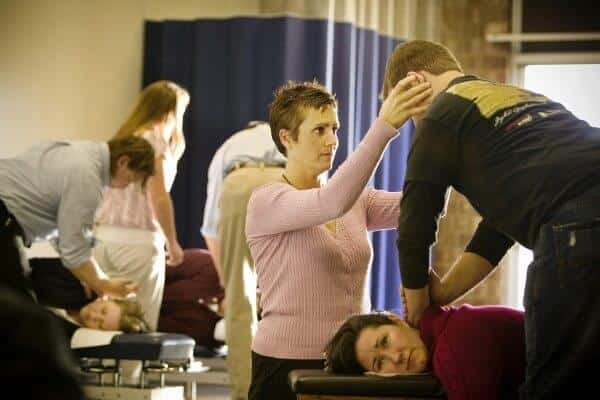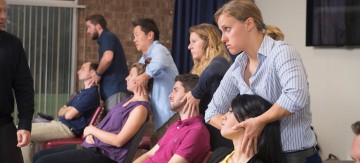[et_pb_section bb_built=”1″][et_pb_row][et_pb_column type=”4_4″][et_pb_text]
I was thinking about what the most pressing issue was for American society in the next twenty years. My essay called the Unexpected Crisis is what followed.
The Unexpected Crisis
Developed countries are facing an unexpected crisis today. It is the rise of obesity, hypertension, cancer, and many other chronic diseases. While many children on this earth are struggling to find shelter, fresh water, and food; thirty-three percent of American boys and thirty percent of American girls are estimated to be overweight or obese. It is also estimated that over 1.6 million new cases of cancer will occur during the course of 2013 in America alone (Rick Alteri). These statistics are disconcerting since we have seen an astounding number of medical advancements over the last 50 years. Yet, the health of our society continues to decrease. I believe that our society is becoming an unhealthy nation despite all of our medical advancements due to poor lifestyle choices.
The ambiguity of how to live a healthy lifestyle is a major factor in the inability of so many to live such a lifestyle. This stems from the individualized and abstract nature of health. An individual may use words such as strong, vigorous, energetic, and/or mentally clear to subjectively describe how they feel when healthy. Conversely, antonyms of these words such as sluggish, under the weather, weak, achy, pain, and a loss of vigor are used when someone isn’t feeling well. So, what does a person do if they are experiencing no pain or ailment, but still feel unhealthy? I believe most physicians would be at a loss as to how to treat the patient and would refer them to another physician that specializes in alternative and complementary care. This is because most general practitioners create a diagnosis from a list of aches and pains rather than focusing on global health.
Global health is a broad subject and very hard to define since it requires an examination of more than just our physical health. One can be free from an ailment and still be unhealthy. For instance, if someone has a BMI of 30, they are obese by that index measure. I personally am at a BMI of 30, but I would describe myself as free from ailment. Does that make me healthy? Of course not; I could certainly do more to improve my health by changing my lifestyle to make it more sustainable as I age. Additionally, I believe health involves more than just the body and mind. A person can be mentally sound, but emotionally unhappy due to life’s circumstances. Over time, this may increase the risk of disease or psychosis. I also believe there is a spiritual or metaphysical piece of health which is often ignored since it cannot be treated by traditional means.
Traditionally, society has depended on physicians in the medical field to be responsible for their global health. This really isn’t possible as medicine confines itself to the scientifically, quantitative interactions of bodily systems. Doctor’s diagnose and treat on the basis of case history and medical tests which are shown to most accurately describe a bodily condition, not global health. Medicine has a clearly defined niche and is very good at stabilizing patients after serious invasions to health such as car collision injuries, third-degree burns, and appendicitis. However, modern medicine doesn’t always do the best job treating chronic conditions or encouraging people to make healthy lifestyle choices. For example, people with high blood pressure are usually given medication to control the problem, rather than working with them to adjust diet and lifestyle. There are also endless amounts of antidepressant and high cholesterol drugs which have more side effects than original symptoms of the disease they treat. Chronic diseases require management and lifestyle changes that need to be addressed by the individual through patient education.
The major issue preventing healthy people in developed countries is the lack of understanding what is healthy or the lack of desire to choose health-promoting activities. Most people today live a
sedentary lifestyle with minimal time for exercise. Others live in constant stress due to their jobs. Fast food and processed food is the standard for meals. All of these activities and choices have a negative impact on our health. Yet, our society continues to do what is easy and the quickest. Instant gratification is the goal without thought of current or future consequences on our health and
well-being. It’s hard to undo years of poor health choices with a pill. It requires education regarding what is beneficial for our health and a desire to make wise choices throughout our lives.
So, how can we become a healthier society? We need to become an educated society. With so much information available at our fingertips through the internet and other sources, we can educate ourselves on almost any topic. There are also alternative healthcare options available that are less invasive than medicine and promote health. We also need to make wise choices based on
the information we have obtained even if it seems counter-cultural. Healthier living is not always easy, convenient or less expensive. If we want to have a healthier society in the next ten to twenty years and beyond, we need to be an informed society and make wise choices as it relates to our lifestyle each and every day.
[/et_pb_text][/et_pb_column][/et_pb_row][/et_pb_section]






